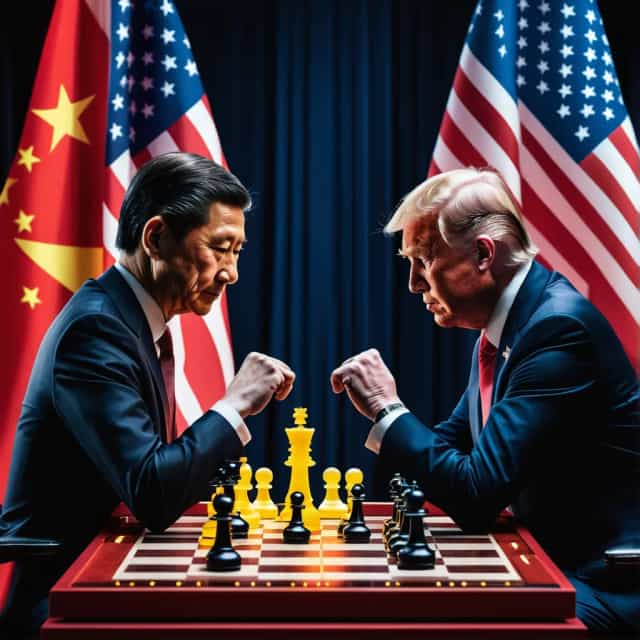
Image source: Block Media
South Korea Modernizes Capital Markets Act, Introducing Regulatory Framework for Unlisted Shares and Fractional Investment Platforms
Expanding Market Accessibility and Strengthening Funding Channels for SMEs and Startups
South Korea has made a pivotal move to streamline investment in unlisted shares and fractional securities through an integrated regulatory framework. This landmark initiative incorporates diverse asset classes—such as unlisted company shares, real estate, artwork, and performance copyrights—into a cohesive over-the-counter (OTC) trading system, fundamentally transforming the country's financial ecosystem. The reform directly addresses market accessibility while fostering efficient funding avenues for small and medium-sized enterprises (SMEs) and startups.
On October 16, the Financial Services Commission (FSC) announced the cabinet's approval of amendments to the Enforcement Decree of the Capital Markets Act. These revised regulations, slated for promulgation and implementation between October 23 and 25, establish new licensing requirements and standards for OTC operators and fractional investment platforms, laying the groundwork for a robust secondary market for trading unlisted and fractional assets.
Establishing Licensing Systems for OTC Platform Operators
A central feature of the amendments is the introduction of exclusive licensing units for entities operating OTC platforms that facilitate the trading of unlisted shares and fractional investment securities. Historically, the Capital Markets Act restricted OTC transactions to one-on-one brokerage, preventing the creation of exchange-style platforms where multiple buyers and sellers can interact simultaneously. By lifting these constraints, the amendments enable streamlined, platform-based trading, driving liquidity and market efficiency.
To secure these specialized licenses, platform operators must meet stringent eligibility criteria. Key requirements include:
- Capital Requirements: A minimum capital threshold of 6 billion KRW (approximately 4.5 million USD) for general platforms, reduced to 3 billion KRW for platforms targeting professional investors.
- Operational Standards: Robust business plans, sound financial health, adequate IT infrastructure, qualified staffing, shareholder suitability, and strong social creditworthiness.
- Technical Capacity: Operators must employ at least eight IT staff members and one professional experienced in trade execution.
These regulatory measures aim to ensure that licensed operators are well-equipped to deliver secure, transparent, and efficient trading experiences.
Enhancing Transparency and Standardizing Practices
The reform strengthens regulatory consistency and transparency by transitioning sandbox-based protocols into permanent supervisory frameworks. These rules encompass critical trading procedures, disclosure obligations, and conflict-of-interest mitigation, ensuring stability and trust within the OTC market.
Key transparency requirements include:
- Unlisted Shares: Issuers are required to disclose comprehensive financial statements, including audited reports, to enable informed decision-making.
- Fractional Investment Products: Disclosure obligations extend to detailed updates on the management status of underlying assets, investor returns, and fee structures.
These measures provide investors with reliable insights into asset health and performance, fostering confidence in alternative investment products.
Improving Accessibility for Investors
The regulatory overhaul is set to transform the convenience and inclusivity of OTC trading. Under previous sandbox regulations, trades demanded both the buyer and seller to use linked accounts at a shared securities firm—an arrangement that limited efficiency. The revised framework now permits securities firms to settle trades via integration with the Korea Securities Depository’s clearing system, significantly improving liquidity concentration and transaction volume.
Fractional investment platforms will also benefit from expanded accessibility. Before the amendments, platforms were restricted to specific asset types, such as real estate or artwork, forcing investors to navigate multiple systems to compare and purchase products. Moving forward, a unified OTC platform will enable trading of securities across diverse asset categories, empowering investors to evaluate and select based on broader underlying investment options.
This integration promises heightened market efficiency and simplification for individual and institutional investors alike.
Facilitating SME and Startup Financing
The FSC projects that the enhanced secondary market structure will play a pivotal role in easing funding challenges for SMEs and startups. By creating an outlet for investors to recover their capital through a distribution market, businesses gain practical alternatives for raising funding without needing immediate access to public markets.
"With a fully functioning distribution market, investor liquidity increases, ultimately boosting demand in primary markets. For SMEs and venture companies that require time before going public, the ability to recover resources through this system significantly enhances their funding capabilities," an FSC spokesperson explained.
This dynamic ecosystem will not only empower SMEs and startups but also invigorate entrepreneurship and innovation across South Korea.
Licensing Reviews for Existing Sandbox Operators
Once the revised regulations are enacted, existing sandbox operators such as Securities Plus and Seoul Exchange will undergo licensing reviews. If approved, they will secure exclusive operation rights for up to two years under the Financial Innovation Act. Fractional investment platforms will also apply for licenses based on guidelines tailored to their unique operations.
These developments position South Korea as a global leader in modernizing capital markets by fostering accessibility, increasing liquidity, and embracing regulatory innovations for cutting-edge investment platforms. As the nation builds this evolved framework, it sets a benchmark for advancing financial systems while supporting growth in key sectors like startups and SMEs.










